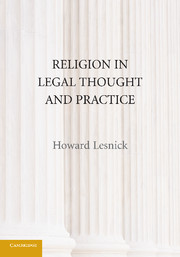Book contents
- Frontmatter
- Contents
- Preface
- I INTRODUCTIONS
- II MORAL OBLIGATION AND RELIGIOUS BELIEF
- 3 What Is the Relation between the Moral Dimension of Obligation and Religious Belief?
- 4 Does Religious Belief Necessarily Have Moral Content? Does Religious Belief Have any Necessary Moral Content?
- 5 What Are the Bases of Resistance to Religiously Grounded Morality?
- 6 Concepts of God, Scripture, and Revelation: The Meanings of “Divine Inspiration”
- 7 Modes of Religiously Grounded Moral Discernment
- III RELIGION AND SOME CONTEMPORARY MORAL CONTROVERSIES
- IV THE INTERACTION BETWEEN RELIGION AND THE SECULAR LAW
- V RESPONDING TO RELIGIOUS DIVERSITY
- VI RELIGIOUSLY GROUNDED MORAL DECISION-MAKING IN PROFESSIONAL LIFE
- Copyright Permission Acknowledgments
- Authors of Works Reprinted
- Scriptural Passages
- Index
7 - Modes of Religiously Grounded Moral Discernment
Published online by Cambridge University Press: 05 June 2012
- Frontmatter
- Contents
- Preface
- I INTRODUCTIONS
- II MORAL OBLIGATION AND RELIGIOUS BELIEF
- 3 What Is the Relation between the Moral Dimension of Obligation and Religious Belief?
- 4 Does Religious Belief Necessarily Have Moral Content? Does Religious Belief Have any Necessary Moral Content?
- 5 What Are the Bases of Resistance to Religiously Grounded Morality?
- 6 Concepts of God, Scripture, and Revelation: The Meanings of “Divine Inspiration”
- 7 Modes of Religiously Grounded Moral Discernment
- III RELIGION AND SOME CONTEMPORARY MORAL CONTROVERSIES
- IV THE INTERACTION BETWEEN RELIGION AND THE SECULAR LAW
- V RESPONDING TO RELIGIOUS DIVERSITY
- VI RELIGIOUSLY GROUNDED MORAL DECISION-MAKING IN PROFESSIONAL LIFE
- Copyright Permission Acknowledgments
- Authors of Works Reprinted
- Scriptural Passages
- Index
Summary
This chapter is focused on the differing ways in which religious institutions go about thinking about moral issues — to put it another way, differing ways of discerning God's will — rather than on the substantive content of differing views of religiously grounded morality. Again, we will see similarities as well as differences between religious traditions and differences (as well, of course, as similarities) within them.
MORAL ABSOLUTES: TRADITION, REVISION, AND TRUTH JOHN FINNIS (1991)
The foundations of Christian moral doctrine are being tested as never before. [Although] the moral norms whose very possibility (as truths) is now disputed are not morality's fundamental principles, the moral norms whose truth is now contested are decisively important for conscience, conduct, and civilization.
I shall set up the issue (not settle it) with some words of Pope John Paul II. There is, he says, a “doctrine, based on the Decalogue and on the preaching of the Old Testament, and belonging to the earliest teaching of the Church, and constantly reaffirmed by her to this day…. The whole tradition of the Church has lived and lives on the conviction [that] there exist acts which, per se and in themselves, independently of circumstances, are always seriously wrong by reason of their object.” Correspondingly, “there are moral norms that have a precise content which is immutable and unconditioned, for example, the norm which forbids the direct killing of an innocent person.”
- Type
- Chapter
- Information
- Religion in Legal Thought and Practice , pp. 177 - 216Publisher: Cambridge University PressPrint publication year: 2010



